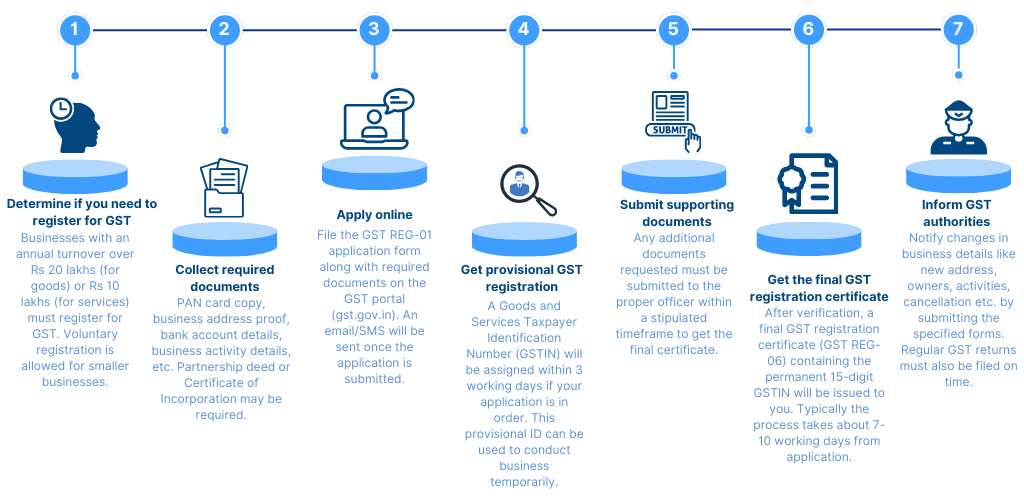Advantages of
GST Registration
- Simplified Tax Structure: Gone are the days of navigating a complex web of cascading taxes! GST replaces multiple indirect taxes with one unified system, making compliance easier and reducing administrative costs.
- Reduced Tax Burden: This streamlined structure often translates to a lighter tax load for businesses, especially in manufacturing and service sectors.
- Increased Efficiency in Logistics: Say goodbye to time-consuming check-posts and border tax hassles! GST facilitates faster and smoother movement of goods across the country.
- Potentially Lower Prices: With the reduced tax burden on businesses, you might just see the price tags on your favorite products shrink!
- Increased Transparency: No more hidden taxes! GST invoices clearly mention the tax amount paid, promoting greater transparency in pricing.
- Wider Choice of Goods and Services: A more efficient tax regime encourages businesses to operate and innovate, leading to a wider variety of products and services for you to choose from. ️
- Increased Revenue: GST has significantly boosted government coffers thanks to improved compliance and a wider tax base. This means more resources for essential services and infrastructure development.
- Reduced Tax Evasion: The centralized and digital nature of GST makes it harder for businesses to slip through the cracks, promoting a fairer tax system.
- Improved Economic Growth: By streamlining processes and lowering the tax burden for businesses, GST can pave the way for a more vibrant and growing economy.
Remember, GST is still evolving and improving, but its long-term benefits for businesses, consumers, and the government are undeniable. It’s a significant step towards a more efficient and transparent tax regime in India.
How NKG can help??
For the past two decades, NKG has been helping more than five thousand clients worldwide, across the healthcare spectrum, to get their products registered. The dedicated regulatory team of NKG has more than ten years of experience in helping clients cross the hurdles they face while marketing their products to sell or distribute in India.
Have a query, drop it at contact@nkgabc.com
1.A representative from NKG will contact you within 24 hours
2.A team will be assigned to help you.
3.Team will help you understand your product’s regulatory requirements.
4.Team will help you to prepare the documents to comply with regulations.
5.The product marketed successfully.
Why Choose us ?











































